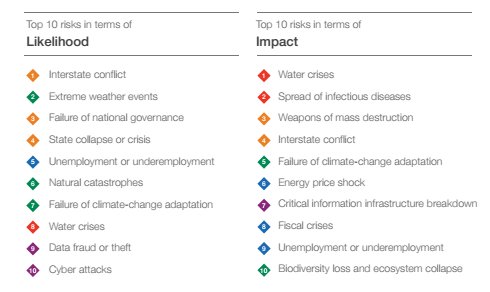In December 2014, the UK review team commissioned by the UK Prime Minister, has published its paper on the impact of antimicrobial resistance (AMR) on the world’s economy and health effects of antimicrobial resistance.
Currently, antimicrobial-resistant infections claim at least 700,000 lives each year worldwide. The review estimates that, by 2050, death toll attributed to antimicrobial-resistant infections may reach 10 million a year if antimicrobial drug resistance is not tackled. For comparison: currently cancer-related deaths account for 8.2 million a year.

The studies referred to in the review estimate that 300 million people are expected to die prematurely because of drug resistance over the next 35 years and the world’s GDP will be 2 to 3.5% lower than it otherwise would be in 2050. This means that between now and 2050 the world can expect to lose between 60 and 100 trillion USD worth of economic output.
In the nearer term the world’s GDP is expected to be 0.5% smaller by 2020 and 1.4% smaller by 2030 with more than 100 million people having died prematurely.

The health effects of AMR is described by the reviewers as a return to the dark age of medicine.
Modern health systems and treatments that rely heavily on antibiotics could be severely undermined. Many high-volume medical interventions, such as caesarean sections, hip operations and organ transplant have become entirely routine in many parts of the world but are dependent upon the availability of effective antibiotics. Modern cancer treatments often suppress patients’ immune systems, making them more susceptible to infections. In a world where antibiotics do not work surgery would become far more dangerous and chemotherapy would become a much riskier proposition.
It is estimated that caesarean sections contribute about 2% to world GDP. Joint replacements add about 0.65%, the vastly improved cancer drugs that have been created since the early 1970s add more than 0.75% and organ transplants add about 0.1%. In aggregate they contribute almost 4% to the world’s GDP, worth at least 120 trillion USD between now and 2050.
While this total would not be completely lost, when this is combined with the other effects of AMR it shows that the world’s economy could lose more than 7% of its GDP by 2050, or a total of 210 trillion USD over the next 35 years.
It may be obvious to expect that the death toll due to AMR in Asian continent, being the Earth’s largest and most populous, will be the highest. However, in terms of mortality rate, Asia will be only second to Africa.



